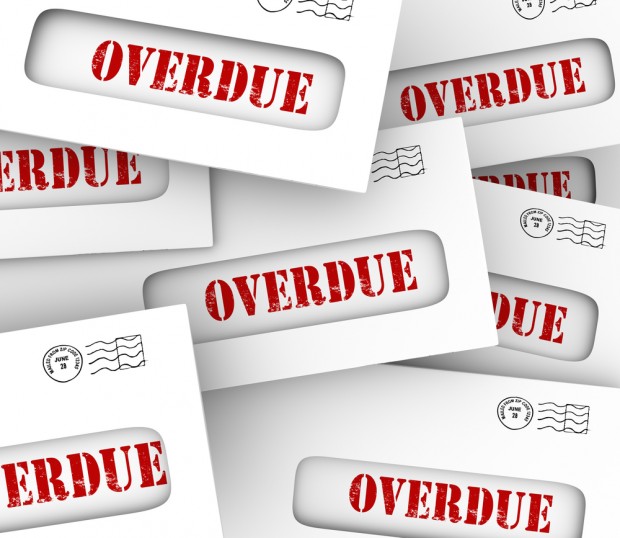How do people or businesses end up being referred to a debt collector?
A person or business can find themselves in financial difficulty for many reasons – overcommitment on their credit cards, sudden unemployment, investments gone wrong, overcapitalisation, or simply spending beyond their means. Thus they become unable to pay or repay money they legally owe.
Once a customer has defaulted on the creditor’s payment terms, internal credit policy and procedures come into play. Normally you, as the creditor, will exhaust all avenues to secure payment. Then, if payment is not remitted or other satisfactory outcomes achieved, you could seek assistance from a qualified and experienced debt collector.
For many creditors the use of a debt collector is one way to help maintain a healthy cashflow for their business by securing payments or repayments within an agreed collection cycle. Another area where a debt collector may assist is when the debtor has vacated all known addresses and a ‘skip trace’ service is required.
Regular cashflow is the staple diet for all businesses – it needs to be maintained.
TIP – Develop a credit and collections strategy for when default occurs outside your trading terms.
Recovering a debt
The number-one skill for a debt collector is communication to gather information. The debt collector initially relies on the information passed on by the creditor: the debtor’s details, the amount outstanding, when the debt fell due, how the debt was incurred, if there was any dispute. Detailed recordkeeping by the creditor is of great assistance as it gives the collector insight into events leading up the referral.
The debt collector needs to make contact with the debtor or entice the debtor to respond. This is achieved by sending letters, making phone calls or using other modes of communication such as email or SMS.
On making first contact, the collector needs to qualify the reason for payment default. This is very important to the collection cycle.
There are two main reasons for default:
1. Debtor is unable to pay and
2. Debtor is unwilling to pay.
Once the reason for default is identified the collector is in a more informed position to work with the debtor to motivate payment and to recommend an appropriate collection strategy to the creditor.
TIP – If you’re extending credit terms, ensure your customers complete and sign a credit application and are clearly aware of your payment terms.
Negotiating repayment plans with your debtor
Once the collector has qualified the reason for default – and identifies that the debtor cannot immediately satisfy the debt outstanding – the debtor should be urged to address their financial situation and submit a written repayment plan for consideration.
A collector may recommend accepting a reasonable repayment plan that secures regular instalments, and should monitor the payments on the creditor’s behalf.
If there is any doubt that the debtor is being open and truthful, the collector will request an ‘asset and liabilities’ statement be completed and signed by the debtor prior to recommending acceptance.
If the repayment plan is to extend over a long period, a periodical review of the debtor’s financial circumstances will be conducted with the view of increasing repayments to have the matter settled as quickly as possible. The debtor and creditor must be mindful that prolonged repayment plans may add further pressure to the debtor’s capacity to service their future debt obligations.
At the end of the day the creditor has to be comfortable in accepting any repayment plan and their decision in agreeing to any proposal needs to be an informed one.
TIP– Formalise extended repayment plans in a ‘terms of settlement’ document and have the debtor agree to pay the out-of-pocket expenses the creditor incurs.
Reducing your risk of loss
The global ‘credit crunch’ gave rise to increased referrals for business-to-business transactions, but with this we saw companies relaxing their credit policies and extending credit terms. In the short term this was desirable to stimulate sales and retain repeat customers, but in the longer term the impact on cashflows increases and so does the risk to business.
You can put in place a number of strategies to reduce your risk of loss. By knowing who you are dealing with you can make an informed decision to approve credit terms. Strengthen internal credit policies by conducting ASIC searches, credit reports, trade-reference checks and listing for risk alerts. Prevention is better than cure.
TIP – Review your credit application to ensure it covers relevant privacy and credit-reporting acts.
Once all avenues of debt recovery have been exhausted
At times commercial decisions need to be made; the emotive urges that can be stirred need to be checked. The capacity of the debtor to pay is initially qualified by identifying the reason for default. If it is established that the debtor has the means to pay but refuses to, then commencement of court action may be the only option.
TIP – Most reputable debt-collection agencies can guide you through the court processes or steer you in the right direction.
Terry Kemp, General Manager, Kemps Petersons Receivables (KPR)















